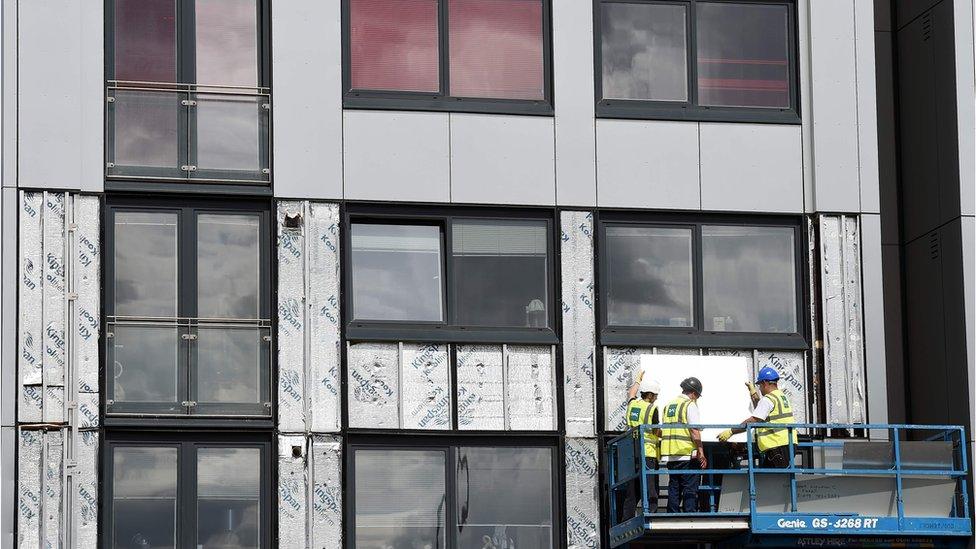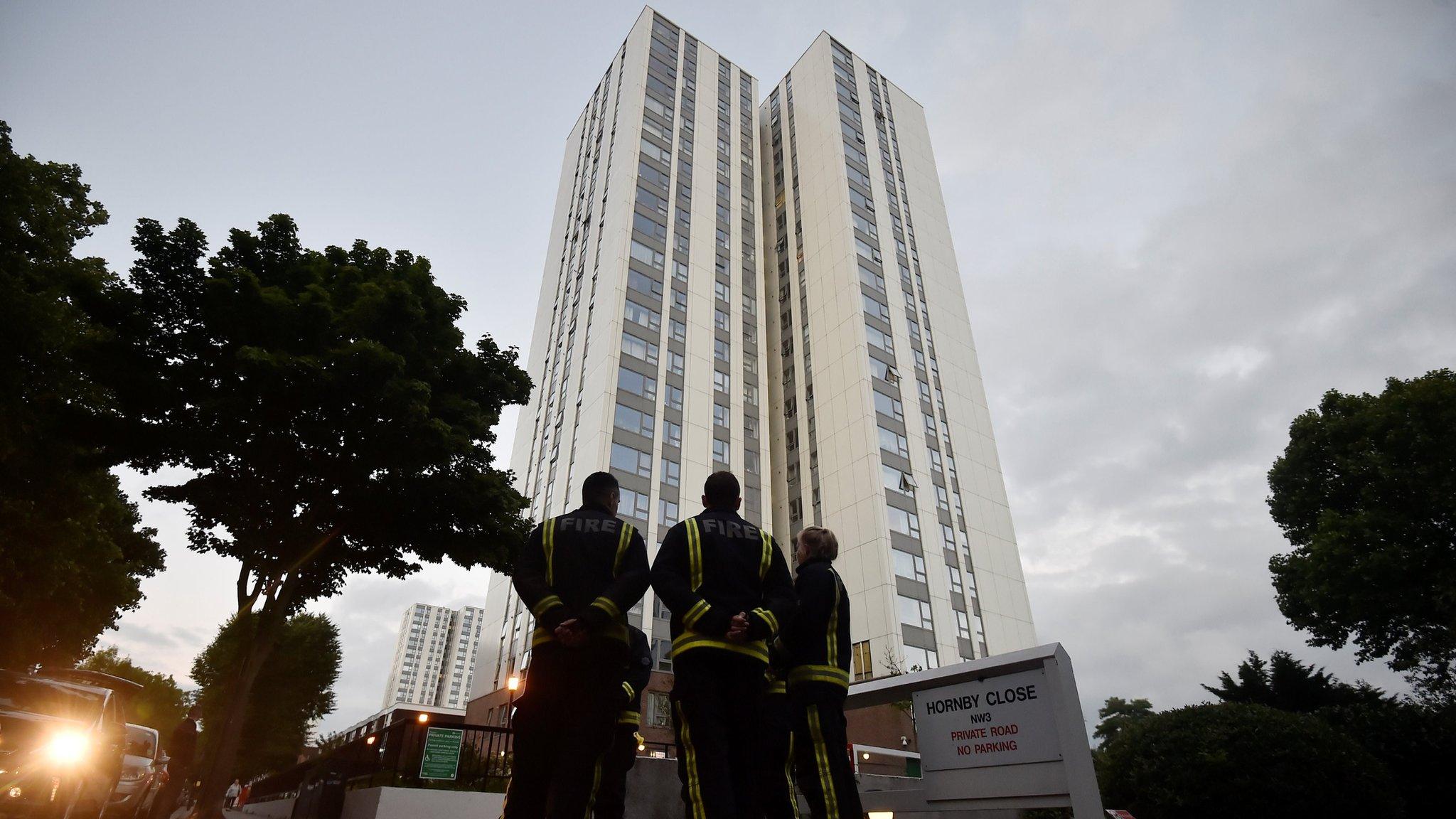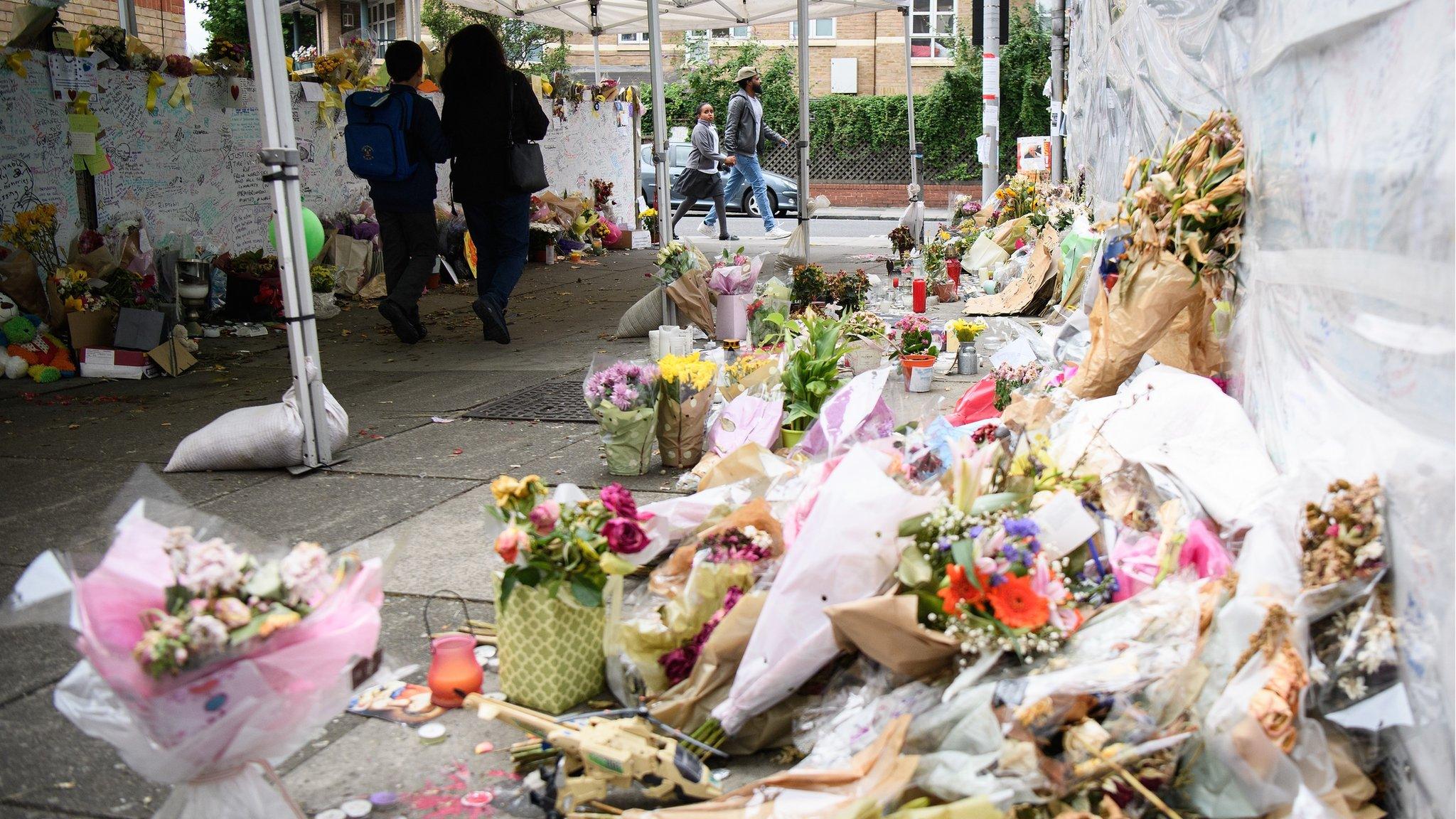Unsafe cladding remains in most affected council areas
- Published

Most of the local authority areas with tower blocks clad in panels that have failed fire safety tests have not yet started to remove the material.
The BBC's Victoria Derbyshire programme contacted every housing association and council affected.
Of the 48 affected areas that have been identified, 37 were able to provide information - 22 had not started removing cladding while 15 had.
Some are reluctant to take the panels down before finding safe replacements.
The BBC has been told there is also some confusion while housing providers wait for the results of more comprehensive government safety tests.
'Further investigation'
External cladding is thought to have contributed to the spread of the fire at Grenfell Tower on 14 June.
The government is now carrying out tests on 600 buildings across England to determine whether cladding panels meet combustibility standards.
A total of 211 tests on high-rise buildings in 55 local authority areas have so far failed, latest figures from the Department for Communities and Local Government show.
The identity of seven of the areas has not been made public, leaving 48 that were approached by the programme.
Housing associations or councils in 11 of the 22 local authority areas where removal of the affected cladding has not yet begun told the programme they were either planning to begin its removal or would do so pending further investigation.
It is understood some councils have decided not to remove panels while they wait for results of a second series of large-scale tests on insulation as well as cladding on the outside of tower blocks.
Others explained why they had not removed any cladding.
For example:
A housing association in Trafford, Greater Manchester, said it was commissioning more detailed fire risk assessments and would act immediately upon any further safety recommendations, including the removal or replacement of cladding
The London and Quadrant housing association, which owns or manages more than 90,000 homes in London and the South East, said it had not made any structural changes to its buildings but had taken a number of steps to address concerns about fire safety
Sandwell Council, in the West Midlands, said it had not removed cladding from its 55 blocks but had removed panelling, which had been found to be combustible, around windows and balconies at four blocks
Newlon Housing Association, in Haringey, said it was waiting to remove cladding on one 22-storey block until suitable replacement material could be found
Naked flame
Architect Sam Webb, a fire safety expert who helped gather evidence for the victims' families during the inquest into the 2009 Lakanal House fire, said he expected all the cladding that had failed the test would eventually have to be removed.
"It's a bit like dressing in flammable clothing and standing them next to a naked flame," he said.
Councils have also told the Victoria Derbyshire programme they are embarking on major fire safety improvements in the wake of the Grenfell fire, with 12 either installing or planning to install sprinkler systems in tower blocks they manage.
In Wandsworth, south-west London, for example, the council plans to fit sprinklers to 100 blocks in the borough.
And in Sheffield, all 24 tower blocks are to be retrofitted with sprinklers.
Regulations in England mean only buildings constructed since 2007 that are taller than 30m (100ft) are required to have sprinklers fitted. These regulations do not apply not apply to refurbishments of old blocks - such as that carried out at Grenfell Tower.
At the moment, fewer than 1% of tower blocks have sprinklers fitted.
Testing changes
Mr Webb said sprinklers should be retrofitted to every high-rise tower block.
"If sprinklers had been in Lakanal and Grenfell, the fire would not have developed enough to break out of the window," he said.
The coroner who investigated the Lakanal House tower block fire in 2009, where six people died, recommended sprinklers be considered in all high-rise residential buildings.
The Local Government Association said councils would do whatever was needed to ensure residents were safe in their homes.
A spokesman said: "We have been clear all along that entire cladding panels and the insulation behind them need to be fire tested together as a system, rather than just the core of the panels on their own, and are pleased these much-needed changes to the testing process are now going to happen."
Watch the Victoria Derbyshire programme on weekdays between 09:00 and 11:00 on BBC Two and the BBC News channel.
- Published12 July 2017

- Published19 July 2017

- Published30 June 2017

- Published6 July 2017